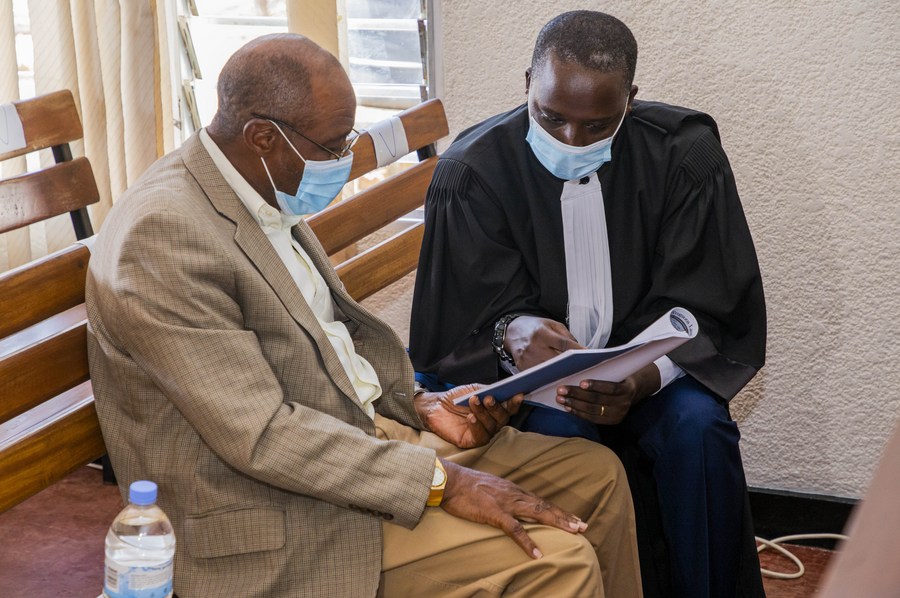
‘Hotel Rwanda’ hero, Paul Rusesabagina declines to plead to terrorism charges

Paul Rusesabagina, portrayed as a humanitarian in the controversial Oscar-nominated film “Hotel Rwanda,” on Monday declined to plead guilty or not guilty to 13 charges against him during a pre-trial hearing, which was his first appearance in court after being arrested.
Rusesabagina appeared before a judge at Kagarama Primary Court in the Rwandan capital city Kigali, who read 13 charges against him, including terrorism, forming and recruiting people into an armed organization, issuing instructions of the terrorism act, complicity to murder and arson, among others.
The 66-year-old said while he admitted committing some of the alleged charges during his interrogation, he “would respond to each of them when the trial opens in substance,” he said.
“All my answers to these accusations were well documented in my file before the court and for now I will not add anything to my written submissions,” he said.
The prosecution in the hearing alleged Rusesabagina was behind serious crimes against unarmed, innocent Rwandan civilians in the south-western districts of Nyaruguru and Nyamagabe in June 2018 and December in the same year, respectively.
Defence lawyers questioned the court’s competence to try their client, arguing that Rusesabagina was not a Rwandan resident and he was not in the country when the alleged crimes were committed.
It was dismissed by the court as Rusesabagina was arrested at Kigali International Airport located in Kigali’s Kicukiro district and still keeps his Rwandan citizenship while holding the one of Belgium.
They also demanded the immediate release of their client as he is sick, while the prosecution asked the court to remand Rusesabagina for 30 days as investigations into his alleged crimes continue.
The hearing was adjourned to Thursday when it will pronounce its ruling on the bail application.
Rusesabagina was made famous by the film “Hotel Rwanda,” where he saved over 1,000 ethnic Tutsis during the 1994 Rwandan Genocide against the Tutsi, which claimed over one million lives.
However, survivors and experts disputed the story.






